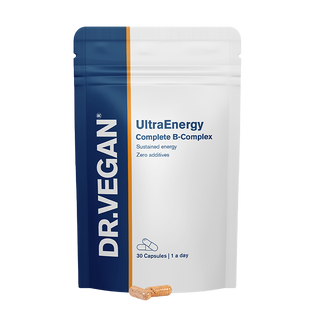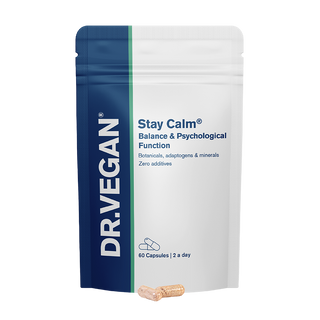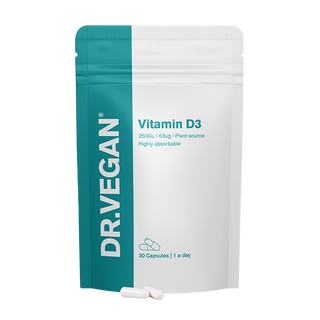Understanding and managing seasonal affective disorder (SAD)

Seasonal Affective Disorder (SAD) is a type of depression that occurs at specific times of the year, most commonly during the autumn and winter months. It is believed to result from reduced exposure to natural sunlight, which can disrupt the body's internal clock, or circadian rhythm, and lower levels of serotonin, a neurotransmitter that regulates mood. Additionally, decreased sunlight may affect melatonin production, which influences sleep patterns and mood. While the exact causes are not entirely understood, SAD is strongly linked to changes in daylight exposure, making it more common in regions with long winters and limited sunlight.
Key symptoms of SAD
The symptoms of SAD overlap with those of major depression but are seasonal in nature. They include persistent low mood, lack of energy, difficulty concentrating, feelings of hopelessness, and irritability. You can even have physical symptoms such as changes in appetite (often craving carbohydrates), weight gain, and excessive sleepiness (hypersomnia). For some, the disorder manifests as 'winter blues', but for others, it can be debilitating and severely impact daily life. You might be interested in reading 'how to beat chronic fatigue.'
Who is at risk of developing SAD?
SAD can affect anyone, but certain groups are at higher risk. Women are significantly more likely to develop SAD than men, though men may experience more severe symptoms when they do. Younger adults, particularly those aged 18–30, are also at increased risk. Geographically, individuals living in higher latitudes with longer winters and reduced daylight are more susceptible. For example, SAD is more prevalent in countries like Norway, Canada, and the northern United States compared to regions closer to the equator.
Tips to manage and overcome SAD
Light therapy: One of the most effective treatments for SAD is light therapy, which involves exposure to bright, artificial light that mimics natural sunlight. This helps regulate circadian rhythms and support serotonin levels. Using a light box for 20–30 minutes each morning can significantly alleviate symptoms.
Cognitive behavioural therapy (CBT): CBT, specifically tailored for SAD, can help individuals reframe negative thought patterns and develop coping strategies to manage symptoms.
Physical activity: Regular exercise, particularly outdoors, is highly beneficial. Physical activity releases endorphins, improving mood and energy levels, while exposure to daylight enhances Vitamin D synthesis. You may be interested in '5 tips for a safe and enjoyable return to running'.
Maintain a routine: Consistency in sleeping, eating, and exercising can help stabilise your mood and energy levels. You may be interested in reading our guide to holiday sleep.
Seek social support: Engaging with friends, family, or support groups can counteract feelings of isolation often associated with SAD.
Can SAD be prevented?
While SAD cannot always be entirely prevented, early intervention and proactive measures can reduce its impact. Awareness of the condition and recognising its seasonal pattern can help individuals prepare for and manage symptoms. Beginning light therapy, establishing a routine, and engaging in regular exercise before symptoms start can be effective preventative strategies.

How good is what you're putting into your diet? Create your free Diet Profile now to find out.
Lifestyle changes to help with SAD
Lifestyle modifications play a critical role in managing SAD. Increasing exposure to natural sunlight by spending time outdoors, even on cloudy days, can help. Decorating spaces with brighter colours and ensuring good indoor lighting can also make a difference. Avoiding excessive alcohol and caffeine, which can disrupt sleep and exacerbate symptoms, is advisable. Incorporating stress-reduction techniques like mindfulness, meditation, or yoga may also help improve overall wellbeing.
In a DR.VEGAN® survey of over 800 people, 67% of customers said that their gut health worsened when stressed, with a key symptom being an increase in bloating*. This shows the importance of incorporating the suggested stress-reduction techniques into your routine to keep your gut feeling happy and healthy this Christmas.
Nutritional changes to support mental wellbeing
Diet can play an important role in managing SAD. Consuming a balanced diet rich in omega 3 fatty acids, found in fatty fish, flaxseeds, and walnuts, supports brain health. Why not give our 'Vegan chocolate mousse tart (Ve)' recipe a go, the perfect sweet treat to support brain health. Foods high in tryptophan, such as turkey, eggs, and bananas, can help support serotonin production. Complex carbohydrates like whole grains, oats, and legumes provide sustained energy and prevent mood swings. Read more in 'Foods to support energy and reduce stress'. Maintaining stable blood sugar levels by eating regular meals and avoiding refined sugars is also crucial. You may also be interested in learning about ultra-processed foods.
Supplements for SAD
Certain supplements may help reduce SAD symptoms. Vitamin D is particularly important, as reduced sunlight during winter can lead to deficiency, which has been linked to depression. DR.VEGAN's award-winning Vitamin D3 supplement is highly absorbable and more effective than standard supplements, providing you with essential support for healthy bones, teeth and immunity every day.
DR.VEGAN's Daily Multi-Vitamin, ensures you get essential nutrients that may be lacking in your diet, supporting overall energy and wellbeing. Additionally, DR.VEGAN's Stay Calm® can help manage stress while improving mood stability during challenging months.
When to see a GP
If symptoms of SAD persist, worsen, or significantly interfere with daily life, it is essential to seek professional help. A GP can assess the severity of the condition, rule out other medical issues, and recommend treatments including antidepressants, therapy, or referrals to specialists. Seeking help early can make a substantial difference in managing the disorder effectively.
Conclusion
Although SAD can often be debilitating, with the right combination of lifestyle changes, nutritional adjustments, and medical interventions, it is possible to manage and overcome its challenges. Understanding individual risk factors and taking proactive steps can empower individuals to navigate seasonal transitions more effectively and maintain overall wellbeing.
View our range of award-winning supplements and probiotics.
*This article may contain data based on a UK survey conducted by DR.VEGAN® customers, nationally representative. All survey findings reflect our own efforts and have not been independently verified or influenced by any external organisations or third-party entities.
You may also enjoy reading:



















